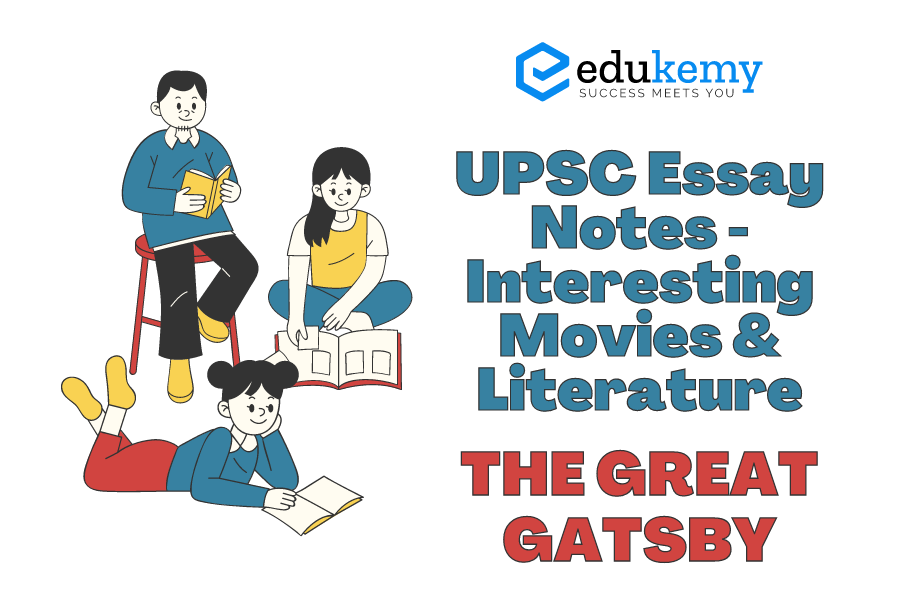
In the realm of literature and cinema, certain narratives transcend their temporal settings, captivating audiences across generations with their timeless themes and compelling characters. F. Scott Fitzgerald’s magnum opus, “The Great Gatsby,” stands as a quintessential example, its exploration of the American Dream, wealth, and disillusionment resonating as strongly today as it did upon its publication in 1925. As readers delve into the intricacies of Jay Gatsby’s lavish parties and the enigmatic allure of Daisy Buchanan, they find themselves immersed in a world where ambition collides with morality, and love intertwines with betrayal. Similarly, in the realm of cinema, the adaptation of this literary masterpiece has brought Gatsby’s opulent lifestyle and tragic fate to life on the silver screen, captivating audiences with its visual splendor and emotional depth. Through both mediums, “The Great Gatsby” offers profound insights into the human condition, inviting reflection on the pursuit of happiness and the elusive nature of fulfillment. In this essay, we explore the enduring relevance of “The Great Gatsby,” examining how its portrayal in literature and film continues to captivate and provoke thought in audiences worldwide.
The Great Gatsby is a 1925 novel by F. Scott Fitzgerald which has been adapted into a movie and television series. The novel depicts Nick Carraway’s interactions with Jay Gatsby, a mysterious millionaire who lives near New York City. His obsession to reunite with Daisy Buchanan, a rich woman in the neighborhood.
Contents
- 1 Message
- 2 Frequently Asked Questions (FAQs)
- 2.1 1. Why is “The Great Gatsby” considered a significant work in literature?
- 2.2 2. How does “The Great Gatsby” reflect the societal norms of the Jazz Age?
- 2.3 3. What makes “The Great Gatsby” a suitable subject for analytical essays in competitive exams like UPSC?
- 2.4 4. How does “The Great Gatsby” capture the essence of the American Dream?
- 2.5 5. What cinematic adaptations of “The Great Gatsby” are noteworthy, and how do they compare to the original text?
- 3 To get free counseling/support on UPSC preparation from expert mentors please call 9773890604
Message
- The novel gives a thrilling roller coaster ride to all the readers as they witness a series of emotions juxtaposing one another.
- It reflects treatment of social class: a pure distinction in inheritance and self-made man, treatment of race and environmental concerns.
- Failure of American dream.
Frequently Asked Questions (FAQs)
1. Why is “The Great Gatsby” considered a significant work in literature?
- Answer: “The Great Gatsby” is celebrated for its exploration of the American Dream, societal decadence, and the illusion of wealth. It delves into themes such as love, betrayal, and the pursuit of happiness, making it a timeless piece of literature.
2. How does “The Great Gatsby” reflect the societal norms of the Jazz Age?
- Answer: F. Scott Fitzgerald’s portrayal of extravagant parties, reckless behavior, and the obsession with wealth in “The Great Gatsby” mirrors the excesses and moral decay prevalent during the Jazz Age, providing valuable insights into the era’s social fabric.
3. What makes “The Great Gatsby” a suitable subject for analytical essays in competitive exams like UPSC?
- Answer: The multi-layered characters, intricate symbolism, and thematic depth in “The Great Gatsby” offer ample material for critical analysis, making it an excellent choice for essays that assess candidates’ comprehension, interpretation, and analytical skills.
4. How does “The Great Gatsby” capture the essence of the American Dream?
- Answer: Through Jay Gatsby’s relentless pursuit of wealth and love, juxtaposed with the disillusionment and moral corruption surrounding him, the novel illustrates the fragility and ultimate hollowness of the American Dream, prompting readers to reflect on its true meaning.
5. What cinematic adaptations of “The Great Gatsby” are noteworthy, and how do they compare to the original text?
- Answer: Notable film adaptations of “The Great Gatsby” include the 1974 version starring Robert Redford and the 2013 adaptation featuring Leonardo DiCaprio. While these films capture the visual splendor of the novel, they often face criticism for simplifying the complex themes and character motivations present in Fitzgerald’s original work.
To get free counseling/support on UPSC preparation from expert mentors please call 9773890604
- Join our Main Telegram Channel and access PYQs, Current Affairs and UPSC Guidance for free – Edukemy for IAS
- Learn Economy for free- Economy for UPSC
- Mains Answer Writing Practice-Mains Answer Writing
- For UPSC Prelims Resources, Click here

